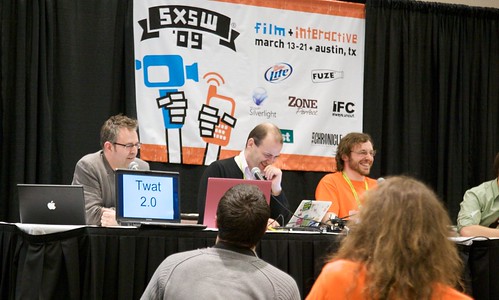On being more interesting
/Another year, another blog upgrade. Yes I have taken the plunge into the mobile-first generation and switched www.sociability.org.uk to the juggernaut that is Squarespace. It's taken me quite a bit of getting used to, but it does look lovely on a tiny screen, which is how all the best websites need to be these days.
Aside from the platform though, there are a few other changes at Sociability this month. I'm writing this from the rainy south coast where I'd been holed up for much of last year writing my latest book, A Mind for Business (available in all fine bookshops and makes a lovely gift, hint hint). Having spent most of 2014 writing a book, I've been struck by just how rarely I'm posting on this blog, and trying to work out whether that's just because I've been busy, or because there's something not quite right about it.
My conclusion, such as I have one, is that the problem was that my posts back then weren't actually very interesting. I was writing about social media, which frankly hasn't really interested me so much since it got taken over by advertisers and Taylor Swift. Not that I have anything against dear old T-Swizzle, mind. It's just that when I was working on School of Everything and co-writing Social by Social, technology seemed to be the new frontier. Now, I look at the torrent of new dating sites and micro-blogging tools and wonder where the new frontier went after all. Even more worryingly, I look at the hacking and slashing of public services that now lurks behind the 'radical disruption' banner, and wonder just where the invisible revolution we were promising a few years ago has actually ended up.
No wonder, then, that I haven't been feeling very inspired to blog about technology lately. So I think it's time I wrote about the things that actually are interesting me. After all, before we can be interesting, we must first be interested. And I am very interested. In so many things.
Since starting Mindapples as a business in 2010, I've grown more and more interested in the workings of the human mind, and the emerging and chaotic findings of psychology and neuroscience. I am not so taken with the rather tedious attempts to apply all this amazing research to increasing sales or boosting 'efficiency', but I am interested in the human mind as a design consideration. I am interested in how understanding and harnessing our humanity can help us improve how we live and work, and what society would look like if we designed it around human nature rather than trying to change it all the time.
In the lucky West, we live in a world increasingly dominated by technology that improves our lives, but it is often developed without a detailed consideration of what we need to thrive. Public services are built without thought to their emotional impact, and society is run on some quite archaic principles about human nature, from the myth of rational independent economic choice to a worrying overuse of eye-witness testimony.
So here on Sociability I intend to write about other things I can't write about elsewhere: the effects of society on our minds and our wellbeing; the psychology behind some of the big political and social phenomena of our age; the essential ingredients of human nature that can be harnessed for good or channeled towards evil.
In short, this blog is going to be about humanity, not technology. Or perhaps sometimes the intersection of the two. I will do my best to write for myself rather than for anyone else, and to write what I find interesting rather than what I think I should be saying. Let's see where that takes us, and if I have to rebrand the site again, so be it. After all, anything's better than being boring. Happy reading!











